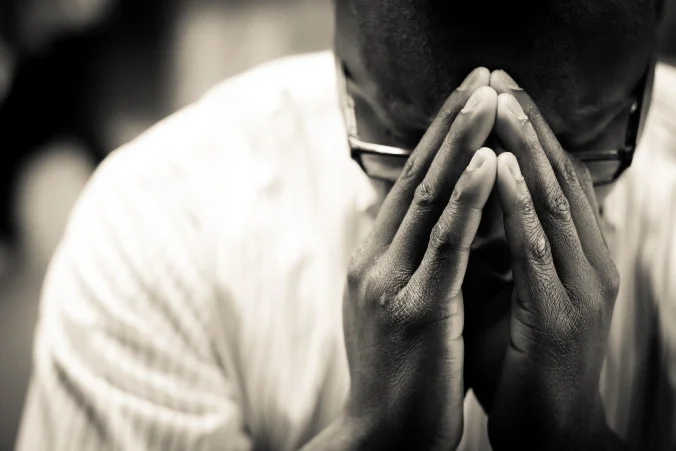2021 kicked off with the Confederate flag marching through the U.S. Capitol. Not far from it, in the same crowd, flew a giant flag reading: JESUS SAVES.
Many Christians who are not Black themselves have condemned the ties between our faith and White supremacy. But many have not.
And that has meant division.
We all cope with this conflict differently. Maybe you try to “win” with information, emailing articles or videos that may or may not ever get opened. Maybe you get into interruption-filled shouting matches. Maybe you try to change the subject to something safer—work, school, the kids.
Maybe you have been through all of these phases.
And maybe, for some, you have ended up cut off or cutting off entirely. You just couldn’t see eye to eye. And then came the pandemic as a convenient excuse to stay away.
Christian Strangers
What happens now? Is there hope for reunification of God’s hands and feet when the cancer of White supremacy has invaded so many of her organs?
One of the hardest feelings through all this is often a sense of shock, of looking at familiar faces and seeing racist strangers. How can my sweet mother lecture me about George Floyd’s criminal record? How can my uncle, an elder at his church, insist that a post-Obama America is by definition post-racial? How can my neighbor, who taught me in Sunday School, claim to believe the Gospel and still stick to saying “All Lives Matter”?
In some ways, as a Chinese-American, discovering fellow Christians’ racism is less of a surprise. It’s not a secret to many Asian-Americans that anti-Blackness and colorism are rampant within our communities, and you can’t grow up as one of the few non-White kids in an Ohio suburb without discovering a lot of your White neighbors are racist.
Spirit-Led Change
I’ve read and seen a lot that makes me skeptical things will change. Even though it’s mostly about politics, Ezra Klein’s book Why We’re Polarized talks a lot about how for humans, survival usually depended on whether your community accepted you more than whether you were right about facts or morals. So our brains are wired to believe what most people around us believe.
And “people around us” is not just people physically around—zero of my friends or family who continue to hold on to racist views do so without being exposed to a lot of White supremacy through social media, the radio they listen to, and the TV they watch. For some, it’s literally hours upon hours a day.
So if we think logic or facts or a friendly conversation in which no one loses their cool is enough to change someone’s views, we’re being naive. No matter how antiracist you are, will you be able to disentangle your loved one from her entire support community, who might eject her for actually daring to change her mind?
But sometimes it takes obstacles that feel insurmountable to realize that no obstacle is surmountable without God’s help.
We can remain hopeful because the same Holy Spirit who awakened us to repentance is alive in the most racist of his children. The church as a whole, including many White Christians, has shifted thanks to the Spirit’s work, and I have to believe He is not only after low-hanging fruit.
I confess to often taking the change-the-subject route over the last year. But speaking with a friend recently convinced me that this is not the right way to go, that far from putting myself in a box it is putting God in a box. I believe that God’s desire is for his whole church to embrace the whole counsel of his Word, and that the same Word has power to change hearts where facts alone fall short.
Believing the Gospel
Some churches try to silence teaching about racism by saying “just stick to the Gospel.” One framework of the Gospel describes it as “Creation, Fall, Redemption, Consummation.” Often, with fellow Christians, we assume we understand and agree on what all of these words mean and how they apply to our lives and our world.
And maybe it’s exactly those assumptions that have allowed Satan to so deeply divide us.
For example, regarding creation: we agree God made humans in his image. But why did he create us different races? How do people of different races bear the image of God?
Or, fall: Is racism a manifestation of the fall? If so, is it limited to individuals or does it reach whole systems and societies?
Redemption: If racism is a part of the fall, how do believers repent of it and participate in God’s work of redeeming the world from it?
And finally and most sharply for me, consummation: John describes a vision of saints of every nation, tribe, tongue, and language before the throne. (Revelation 7:9) Clearly, God sees color and has no intention of un-seeing it or erasing it. The wedding feast of the Lamb is not going to just be steak and potatoes. But what does that mean for right now?
As I write these questions and consider many others like them, I think of Christian friends and family who have expressed racist views. I know these are questions we have never discussed. In our rush to argue about police reform or affirmative action or immigrant family separation, we assumed we agreed on the Gospel and now I’m questioning that assumption.
“The Gospel” is not just a cute stick figure drawing in a tract. The Bible gives us so much more to dig into, forces us to confront so many more questions when we really think about how Jesus’ good news impacts every complexity of human life. Ignoring all of these deeper layers of meaning is not sticking to the Gospel but neutering it, remaking it in our image rather than using the minds God gave us to understand all that it is.
Safety in Theology
If you’re like me, you are not really in the habit of talking about theology with fellow Christians outside of a Bible study context. In some ways it feels kind of awkward and scary.
But, in some ways it actually isn’t scary at all. At least, it’s not as scary as talking about White supremacy. It doesn’t put up people’s defenses. It’s not something most people tend to shout about. The stakes don’t feel as high, even though in reality they are eternally high.
And that’s why as a deeply divided church, we need to return to what we all claim to believe and start from there. We are standing on two opposite ends of a Venn diagram yelling at each other rather than prayerfully seeking to build the crumbling shared ground in between.
Careful Consideration
In our recent Women’s Bible Studies on Hebrews, we have read how Scripture instructs us to “consider how to stir one another up to love and good works...encouraging one another, and all the more as you see the Day drawing near.” (Hebrews 10:25)
The word “consider” has always struck me, because it implies that it’s not always straightforward how to stir your brother or sister up to love. It takes thought. It takes a lot of prayer. It takes wisdom and creativity, trying and failing and returning to the drawing board to try again.
As the Day draws near, the stakes keep getting higher. Racism in the church trickles down to violence against many people of color, whether individual or structural.
And because of racism in the church, many non-Christians reject Christ. When asked how they’d describe evangelicals in general, 17% of non-Christians in a recent Barna survey said “racist.” It may not seem like a high number, but if almost 1 in 5 nonbelievers views the church this way, the same number are unlikely to give serious consideration to the person of Jesus.
Yes, the structures of systemic racism and the obstacles of misinformation seem insurmountable. But we do not face them by ourselves. Our God speaks light out of darkness, opens the eyes of the blind, breaks chains and topples empires. We may not see God end racism in the church on this side of heaven, but we know that he can. So let’s pray, let’s preach, let’s rest if we need to, but let’s not give up hope.





